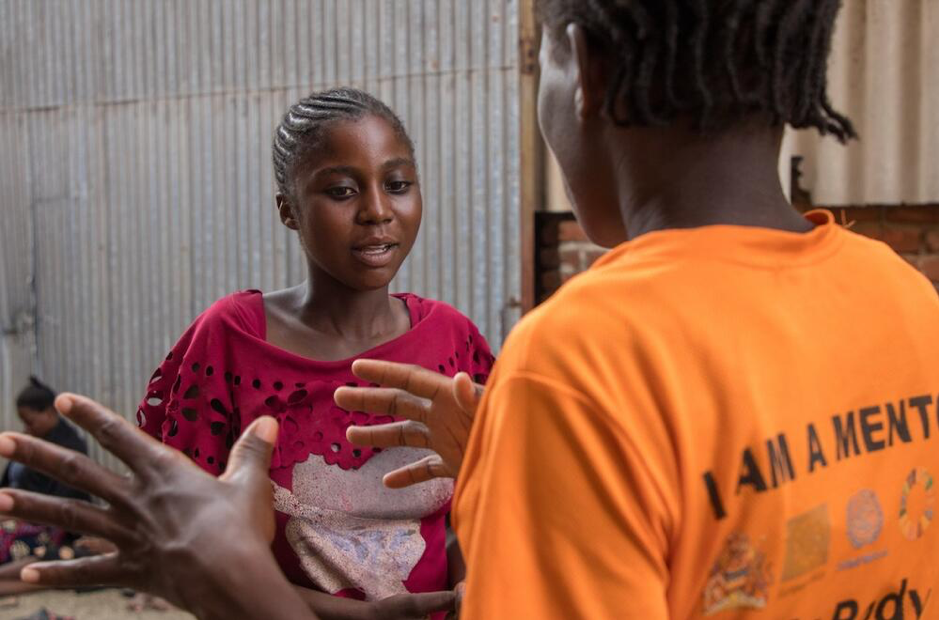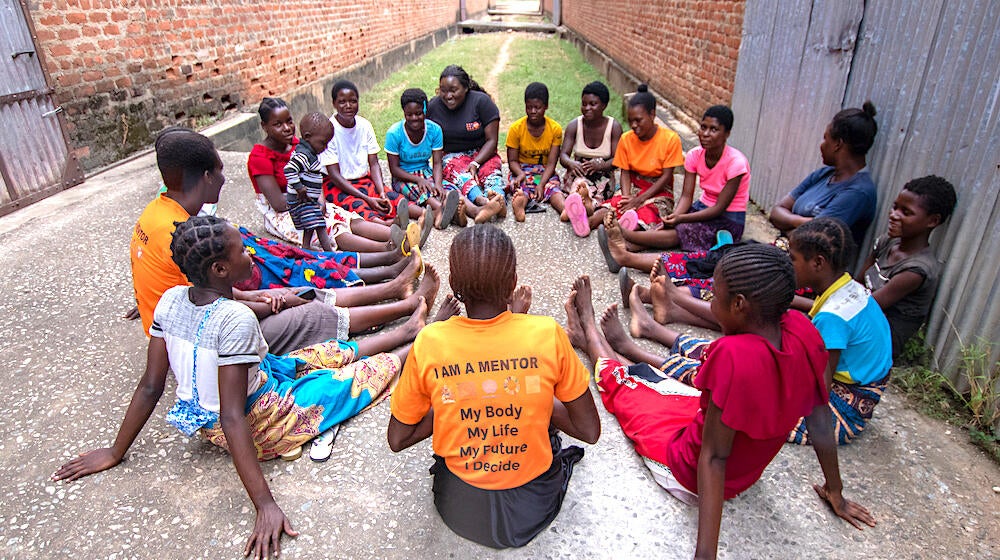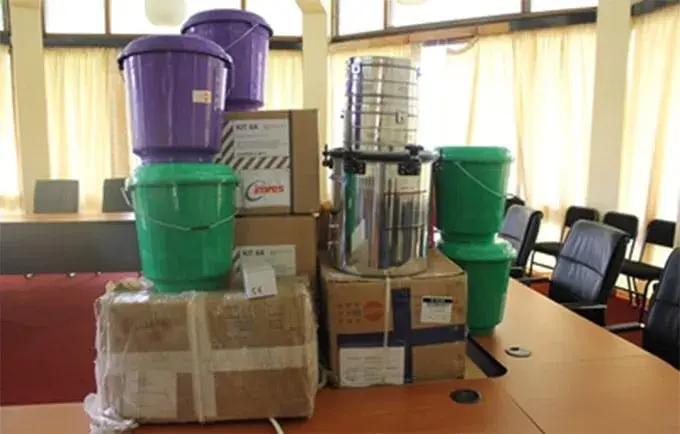NSANJE, Malawi – “We are sleeping in the cold,” says 19-year-old Mirriam Karilito, who is seven months pregnant. “And when the rains come, it’s worse.”
Tropical Cyclone Freddy made landfall in Malawi on 14 March. In its wake, hundreds of thousands of buildings have been destroyed, at least one thousand people have been killed and more than 650,000 people have been displaced.
In recent weeks, the threat from the cyclone itself has abated. But rain continues to fall, causing weakened structures to cave and exacerbating already dire conditions in the Nsanje district – especially for women and girls like Ms. Karilito.
Driven from her home by the cyclone, Ms. Karilito now lives in one of the dozens of temporary camps that have sprung up to accommodate those displaced. But her shelter, made of grass and sticks, offers scant protection.
“I fear for my health and that of my baby,” she said.
Shelter, but not safety
For women and girls, displacement presents particular challenges, including the risk of violence, exploitation and abuse.
Menstrual hygiene products are also in short supply at the camps, forcing women and girls to remain inside their shelters while menstruating.
Anne Benjamin, 15, is one of the more than 300 adolescent girls now taking refuge at a converted storage facility called Bangula camp. More than 13,000 people live there in total.
For Anne and the other girls at Bangula, it is a struggle to manage their menstrual health, as the camp offers few pit latrines and its bathrooms are in disrepair.
“We are now using the river for bathing,” she said. “But it’s difficult to wash and dry the cloth we use as pads, because the men are always loitering around.”
Sharing stories, easing hardships
To combat these challenges, UNFPA is providing adolescent girls and pregnant women at Nsanje district’s camps with dignity kits containing supplies like menstrual pads, underwear, soap and sanitary napkins.
The safe space has helped ease some of the hardships in the camp. We are encouraged to share our stories and discuss how best we can handle the challenges we are facing.

The agency has also set up a network of 68 safe spaces where women and girls can obtain mental health services and information related to sexual and reproductive health, menstrual hygiene and other life skills.
More than 11,000 women and girls, including Anne, have participated so far.
“The safe space has helped ease some of the hardships I face in the camp. During the sessions, we are encouraged to share our stories and to discuss how best we can handle the challenges we are facing,” Anne said.
The safe spaces also offer camp residents an avenue for disclosing incidents of violence or sexual exploitation. Eleven have been reported so far, and UNFPA and local government officials are following up.
“I now know my rights and where to report if someone takes advantage of me,” Anne said. “Through the safe space, I have learned so many things that have helped me to survive.”




